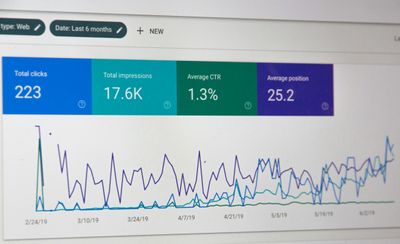And why you need to register a business name that resonates
Unless you’re running Facebook, your target market is unlikely to be “everyone”. A business’s target market is a tightly defined group of people with shared characteristics. They are the most likely to be interested in what you have to offer or the people with the most to gain from knowing about your business.
So far in our Business Planning Guide series, we have looked inward to craft mission and vision statements. Now we’re looking at your business from the outside to understand how to connect with your ideal customers.
Why your target market matters
Understanding your target audience will help in several ways, including:
- Creating marketing messages that cut through the noise
- Setting realistic growth goals for your business
- Deciding what products or services to offer, how to price them and where to advertise
A clearly defined target audience can even help you decide on a business name. Knowing who you’re talking to sets the tone for your brand.
How to define your target audience
If you’re starting or scaling a small business, there’s a good chance you already have a fuzzy target market in mind. Let’s sharpen that to focus on your core customers.
Market research
As you might imagine, market research means looking at your niche from inside and outside to understand who’s buying what, from whom, why and where. Start by gathering data on your ideal customer, then use that insight to evaluate the competitive landscape.
- Examine your audience based on demographic factors (age, location, gender identity, income), psychographic factors (interests, lifestyle traits, values) and behavioural factors (challenges, motivations, brand affinities). If you’re launching a business-to-business (B2B) service, firmographic factors like company size and employee count are also insightful.
- Conduct surveys that ask pertinent questions to your potential customers. Free platforms like SurveyMonkey and Google Forms make this easier.
- Research online to learn which forums, social media and industry websites your audience uses. Don’t be afraid to go down rabbit holes to find popular platforms.
- Run focus groups to engage a cross-section of people who represent your potential audience(s) in open and honest conversation. Assess their feedback against everything else you’ve learnt.
- Study competitors to analyse their strengths, weaknesses and unique appeal. Don’t forget to consider indirect competitors, which are businesses competing for your customers despite not offering a direct alternative to your product or service.
Try to make market research as specific as possible. Narrowing your focus to a niche might seem counterintuitive, but the reality is you can’t be all things to all people.
Once your business name is well-established in your niche, you can expand to new horizons.
Target audience examples
- A plant-based milk brand running quirky offline ads in income areas known to attract “young hipster” crowds.
- A premium skincare label targeting women aged 35-50 who follow upscale lifestyle brands online.
- A landscaping business dropping flyers in the letterboxes of neat-looking homes with not-so-neat lawns.
- An air conditioning repair contractor targeting ads to people in specific postcodes who search for terms like “air conditioner leaking”.
In each target audience example, the business uses what they know about their market to inform where, when and how they peddle products and services.
Bonus tip: Businesses can have more than one target market.
It’s normal to have primary and secondary target markets. For example, the plant-based milk brand would be wise to focus on “young hipsters” in the retail space while separately marketing to cafés and wholesale resellers.
Define your USP
Your unique selling proposition (USP) clearly communicates what sets your business apart. It should be something your target audience cares about, which means it might not necessarily include product features or specific services.
For example, IKEA aims “to create a better everyday life for the many people”, not to sell cheap flat-pack furniture. Great USPs like this convey a business’s advantage clearly and concisely in a way that aligns with the target audience’s primary motivation.
Using target market insights to register a business name that resonates
Business names check a lot of boxes. They evoke emotion, communicate the USP, get stuck in customers’ heads, and hint at the product or service. While that might sound like an impossible feat for a humble business name, it gets easier when you understand exactly what your business is about.
Use the insights and information gathered through market research to create a name that resonates with your target audience.
- Tone: Does your target audience respond to brands that are playful, serious, whimsical, quirky, techy, dreamy or straight-up-and-down professional?
- Familiarity: Does your registered business name connect to a parent company or sound like it belongs in your industry?
- Emotion: What emotion does your business name evoke when read, written, or said out loud?
- Culture: How does the registered business name look and sound to people of different ethnicities, genders and socioeconomic backgrounds?
It’s also worth conducting a business name availability search for your shortlist. Business name checks can often turn up unexpected results, such as similar names or other small businesses registered in your market.
Ultimately, your registered business name should be memorable and relevant to your target market. Check out our guide to the psychology of business names for help choosing a name that communicates credibility.
Ready to register your business name?
Registering a business name is an essential step to protect your brand. Whether you run a small business or a company with several registered business names, making it official means you can confidently claim your niche.
Registry Australia’s online business services bundle everything you need into one user-friendly portal. From business name registration and renewal to .au domain registration, website hosting and custom email addresses, we make starting a small business easy and affordable.




